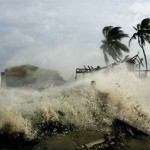– The world’s largest economy is killing itself and its future because it cannot see that only contries that retain their manufacturing at home can remain wealth generators.
– dennis
– – – – – – – – – – –
When too many companies outsource their manufacturing, the industrial ecosystem can suffer long-term consequences.
It’s called moving up the economic value chain: U.S. companies are increasingly conceiving and creating products that are built elsewhere. Prosaic manufacturing, with its razor-thin profit margins and ruthless competition, has been outsourced to Asia. But researchers who study innovation are starting to see a worrisome after-effect: the ability to innovate sometimes disappears with the manufacturing.
Harvard Business School professors David Pisano and Willy Shih set many businesspeople to rethinking whether manufacturing matters with a 2009 Harvard Business Review article titled “Restoring American Competitiveness.” Besides lamenting that outsourcing manufacturing reduces U.S. job prospects and worsens the trade imbalance, the academics argued that economies where manufacturing skills vanish are less likely to harbor future innovation. Because American companies stopped making LCD displays, for example, there was no domestic expertise to build screens for Amazon’s Kindle reader, even though its crucial technology was developed in Cambridge, Massachusetts. Because expertise in thin-film deposition has moved to Asia with most semiconductor production, Chinese companies have a leg up in solar panel manufacturing.
– More… ➡

